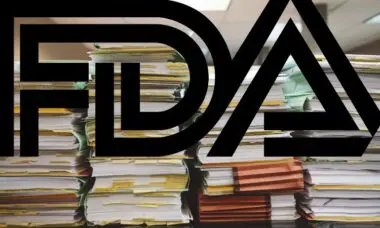 The US Food and Drug Administration (FDA) has refused marketing authorisation for around 17m individual e-liquid products because the unnamed company behind the application did not provide the required environmental assessments (EAs).
The US Food and Drug Administration (FDA) has refused marketing authorisation for around 17m individual e-liquid products because the unnamed company behind the application did not provide the required environmental assessments (EAs).
The FDA said it had issued a refusal to accept (RTA) letter to the company’s grouped premarket tobacco product application (PMTA) covering e-liquids in varying sizes, nicotine strength and flavour combinations.
Adam Bonin, a senior consultant with contract research organisation Broughton Group, told ECigIntelligence that the aim of an EA is to determine if a product’s approval would significantly affect the environment, covering risks associated with the product’s manufacture, use and disposal. The National Environmental Policy Act (NEPA) brought with it the obligation to prepare an EA.
“An EA is a minor part of a PMTA, but it is critical to application success,” Bonin said. “With many companies receiving RTAs, RTFs [refusal to file decisions] or MDOs [marketing denial orders] due to incomplete or lacking EAs, businesses are now looking for help creating them for large numbers of products. This can be time-consuming and expensive for businesses without specific NEPA experience.”
The alphabet of approval, refusal and denial
RTA letters are issued when the FDA’s Center for Tobacco Products (CTP) does not accept a marketing application. An RTF would be issued if the agency conducts an initial review of a submitted application (meant to happen within 60 days of submission) and finds it incomplete.
MDOs are issued after the CTP has fully reviewed an application and determined the marketing of a new tobacco product is not appropriate for the protection of public health. A separate environmental request letter may also be sent to the company. This happens when the FDA has decided a marketing granted order (MGO) should be issued but the applicant is required to send further information on environmental considerations.
E-liquids contain a mixture of ingredients, including propylene glycol, vegetable glycerin, nicotine, flavourings and components for other purposes. The formulation can be screened to determine which elements pose the most concern for environmental pollution. Once identified, these ingredients can be further analysed for aquatic toxicity.
“The EA should analyse plausible scenarios for releasing these ingredients based on the sales data – for example, the foreseen impact of material released into surface water or soils,” Bonin said. He added that the manufacturer must also document the supply chain, including manufacturing and shipping details.
“Possible environmental risks during manufacturing or shipping can then be characterised,” Bonin said. Examples would be if chemical mixtures or raw ingredients are accidentally released into surface water, or if chemicals go down a drain.
Getting it just right
The company may submit a new application for these products at any time. However, the products can be marketed only if the FDA reviews the applications and determines that selling them is appropriate for the protection of public health.
“We remain committed to reviewing applications as efficiently as possible, under regulations and the law and driven by strong science,” the FDA said.
Anthony Jones, managing consultant at Broughton, told ECigIntelligence that companies not including EAs in their original submission might need more work. “Every section must include explicit information that satisfactorily evaluates the product against the requirements, which involves appropriate data collection, analysis, modelling, and a strong understanding of NEPA and other state and federal laws,” he said.
Jones also said the EA needs to be “presented appropriately and written with the correct NEPA-specific language”. He stressed the importance of conclusions being backed up with “hard data”.
But that hard data does not necessarily have to cover what the submitter thinks are the most salient scenarios. Whether there will be minimal impact from a proposal needs to be determined, with the FDA concluding there is a finding of no significant impact.
“In our experience,” said Jones, “including conservative analyses appears to be the most successful approach. It may be tempting to conduct modelling for various release scenarios, but if the FDA deems them unlikely, you may [have an application denied].”
This could be the year
It is also important for a company to determine what information it wants to remain confidential and what can be openly published.
“One EA stumbling block is choosing which information goes in the non-confidential and confidential appendices,” Jones said. “Companies should not include proprietary information outside of the confidential appendices, but it can be difficult for those without specific NEPA experience to know what to include where.”
The FDA has so far determined more than 99% of the nearly 26m deemed products for which applications were submitted by the 9th September 2020 deadline, including authorising 23 new e-cigarette products and devices while also issuing RTA and RTF letters as well as MDOs for millions of other products.
This includes determinations on applications for nearly 6.7m products received by the deadline. The FDA said it would need through 2023 to finish reviewing the PMTAs.
– Antonia Di Lorenzo ECigIntelligence staff
Photo: Wesley Tingey







